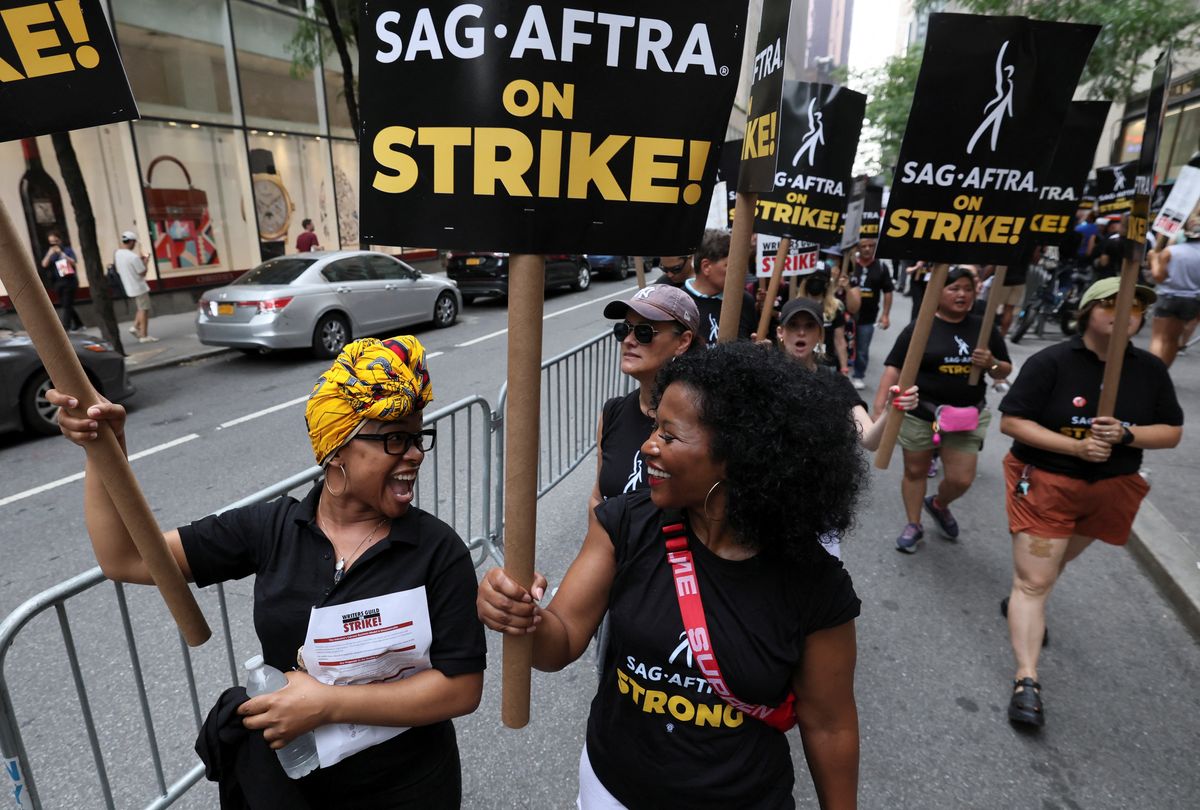SAG-AFTRA actors join the Hollywood WGA strike
This is the first time they’re both on strike at the same time in over 60 years.

A few minutes every morning is all you need.
Stay up to date on the world's Headlines and Human Stories. It's fun, it's factual, it's fluff-free.
A few months ago, the Hollywood writers’ union, the Writers Guild of America (WGA), went on strike, mainly because of issues with residuals (the payments people involved with the project get from repeat showings or reruns) from streaming and other pay concerns. While this strike will end up impacting future TV and movie releases, there hasn’t been a lot of immediate fallout. Certain talk shows and late-night programming have been put on hold, but that’s about it.
On Friday, though, the screen actors’ union, the Screen Actors Guild and the American Federation of Television and Radio Artists (SAG-AFTRA), started its own strike alongside the writers. This is the first time they’re both on strike at the same time in over 60 years.
After its old contract with the production studios association, American Motion Picture and Television Producers (AMPTP), expired last week, SAG-AFTRA wasn’t happy with the new contract that was on the table. When negotiations stalled, SAG-AFTRA’s national board unanimously voted to order a strike – with 98% of its membership already voting in favor of one.
What are the problems with the new contract? Like with the WGA, one of the major issues here is residuals. Actors want residual payments partly based on viewership numbers from streaming services. Otherwise, it’s hard to get residuals from streamers the same way actors get them from traditional TV networks that replay their shows and movies. But studios (including major streamers) don’t want to release those numbers.
Another problem here is the use of AI on-screen. SAG-AFTRA’s chief negotiator Duncan Crabtree-Ireland says, “[AMPTP] proposed that our background performers should be able to be scanned, get one day’s pay, and their companies should own that scan, their image, their likeness and should be able to use it for the rest of eternity on any project they want, with no consent and no compensation.” Yes, kind of exactly like that recent “Black Mirror” episode (you know, “I’m Salma f***ing Hayek!).
Now, how will this strike affect the entertainment industry?
“We've got to sort of buckle down and brace ourselves for a very non-A-list summer and fall,” explains “Vanity Fair” writer Chris Murphy, “We're going to lose a lot of things we're looking forward to… The Emmys, they're probably not going to happen in September. … Our beloved film festivals — our Venice's, our TIFF's — these are not going to have star power. Stars are not allowed to do any FYC campaigns or show up to any events. ... We're not going to be able to get our new seasons of shows — our season three of ‘Abbott Elementary,’ our season three of ‘The Bear.’ Actors cannot show up to set. Writers are not writing scripts. We're going to be in a sort of scripted series blackout for the time being, and we're going to probably see a lot of reality TV and a lot of unscripted television come to the forefront.”




Comments ()